Finally available on Blu-ray (from Altered Innocence) is Patrice Chereau’s defiantly disturbing 1983 film about a young man’s dangerous sexual obsession with an older male hustler.
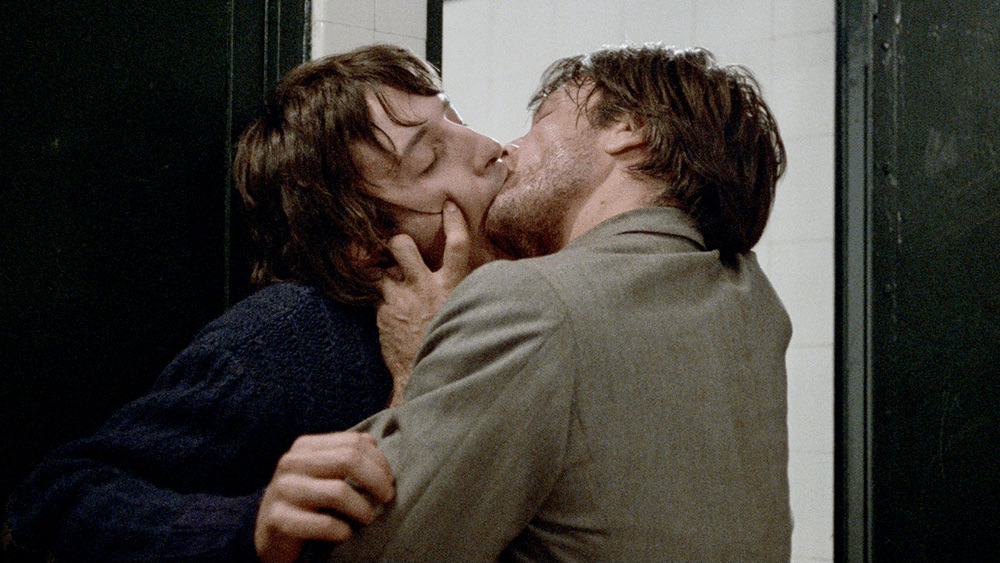
Director Patrice Chereau was mostly known for his inspired staging of operas and theater. This was his third film and originally he had planned on turning Jean Genet’s The Thief’s Journal into a film, but found it too “literary” to translate. So, working with screenwriter Herve Guibert, he fashioned a Genet-like tale of a troubled young man- Henri (Jean-Hugues Anglade/Betty Blue), who, while accompanying his parents to see his sister off at the train station comes across a scruffy, sexy male hustler- Jean (Vittorio Mezzogiorno) beating up a “John” in the bathroom. Jean frantically encourages Henri to go through the beaten man’s pockets for cash and then violently kisses Henri and flees the scene. But this awakens a dark passion in the young man and he keeps returning night after night to the train station toilets (where other male sex workers are loitering), hunting for Jean.
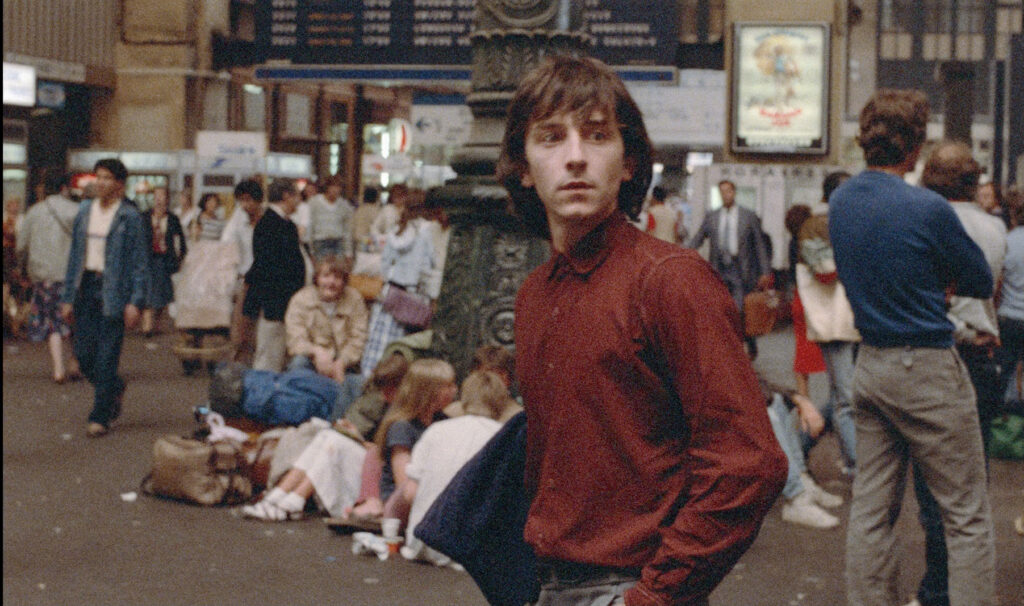
The young Jean-Hugues Anglade is mesmerizing in the role. We see him at home with his sullen, disapproving father (Armin Mueller-Stahl) and his unhappy mother (Annick Alane) and we can feel his savage need to flee this stifling, miserable home life. But this new, dangerous obsession confuses and propels him to do stupid, dangerous things.
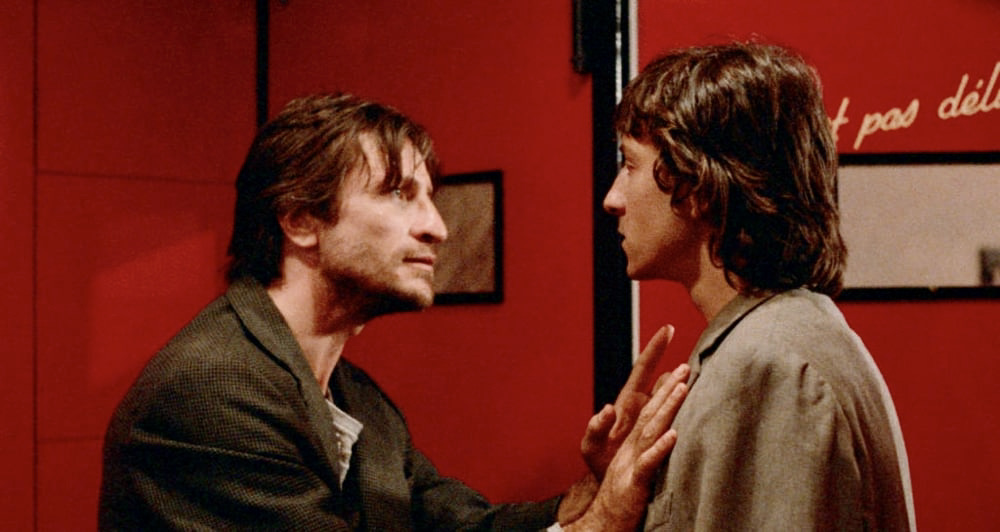
He does make contact with Jean again, who drags him back to where he sometimes crashes with a girlfriend (Lisa Kreuzer). She complains that Jean has forgotten her birthday, which is rather funny considering he has shown up in the middle of the night with a lovesick puppy of a boy who longingly watches Jean sleeping nude. Henri at one point even takes Jean’s clothes and dresses up like him, aping his macho stance at the train station and attempting to turn tricks with the same kind of swaggering aloofness.
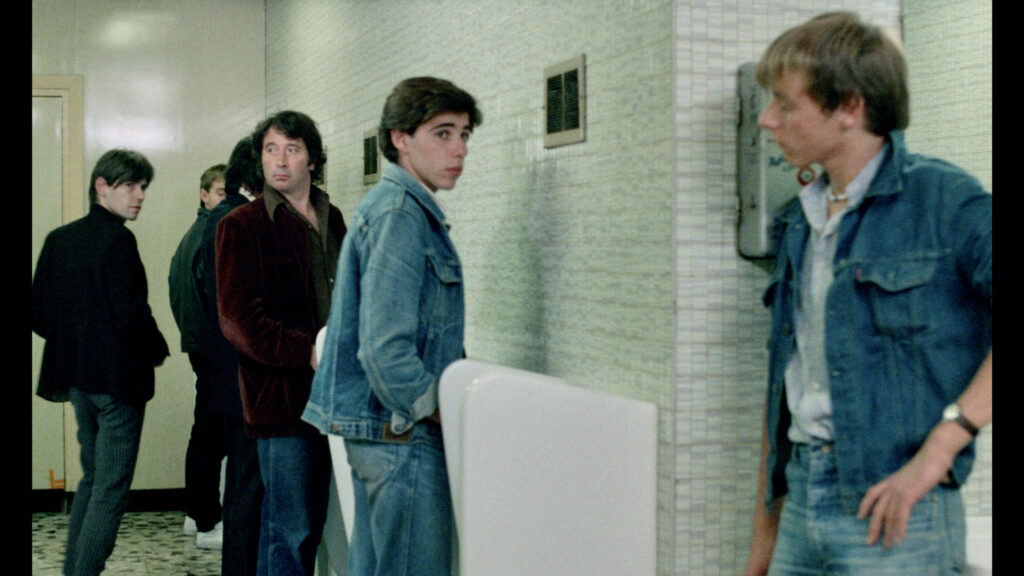
Roland Bertin is terrific as a doctor who prowls the train station hunting for young men. He knows Jean all too well and zeros in on Henri, using Henri’s obsession with Jean to his own advantage.
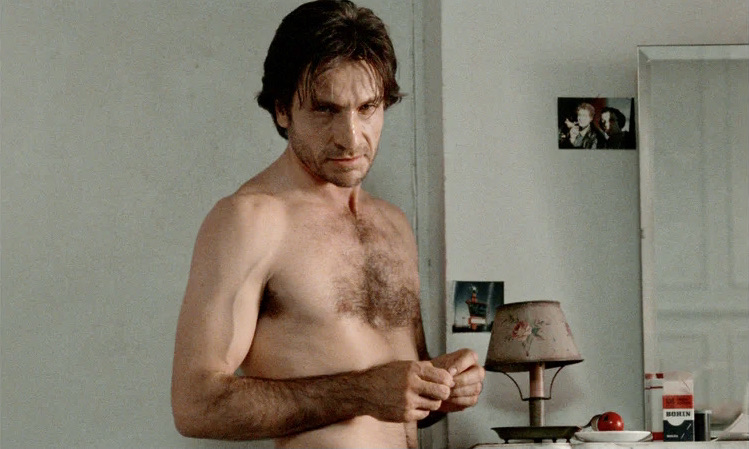
What’s great about the film is that all the confusion and panic that Henri is feeling is perfectly captured on screen. Jean is the ideal Jean Genet object of desire- weathered, criminal, and handsome in a roughneck, unconventional way. (Gerard Depardieu dubbed Jean’s voice in the film to give it a more proletariat vocal pitch). With every interaction with Henri, Jean sexually teases him mercilessly and betrays him constantly, and Henri keeps coming back for more. Trust me, this will not end well.
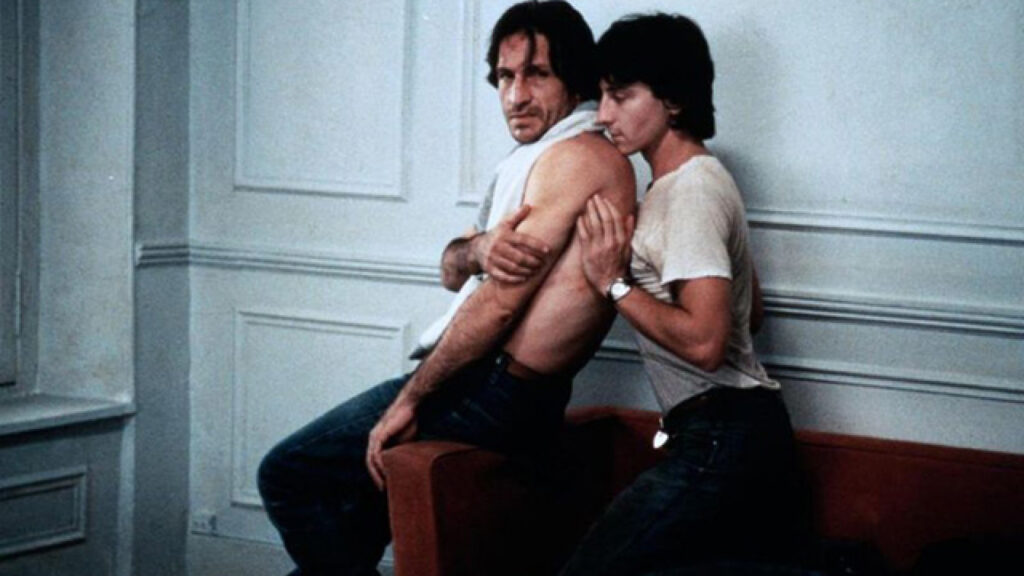
I remember being stunned by the film when it came out in theaters. The uncompromising, gritty look at male sex workers in France caused controversy at the film festivals when it premiered, because it upset and frightened audiences. Chereau, who was openly gay, went on to direct some other extraordinary films like Queen Margot (1994) with Isabelle Adjani; Intimacy (2001), the sexually explicit drama starring Mark Rylance and Kerry Fox; and a personal favorite Those Who Love Me Can Take the Train (1998), but The Wounded Man (or L’Homme Blesse as it was released here) is so thrillingly transgressive it is a “Queer Cinema” high water mark. If you have never seen it, and its unavailability on home video for many years makes that a likelihood, you are in for some wild ride.
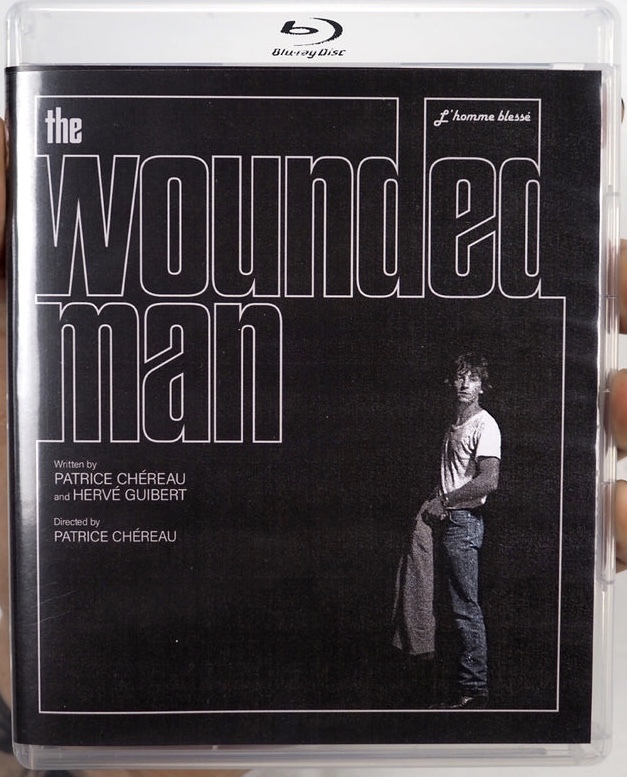
The extras on this digitally restored disc include “The Wounded Man and the Paradox of Queer Visibility,” a video essay by Robert Payne and “Out of the Shadows: Criminalization of Sex Workers in L’Homme Blesse,” where Tom Boyle uses his own history as a male sex worker to discuss The Wounded Man.

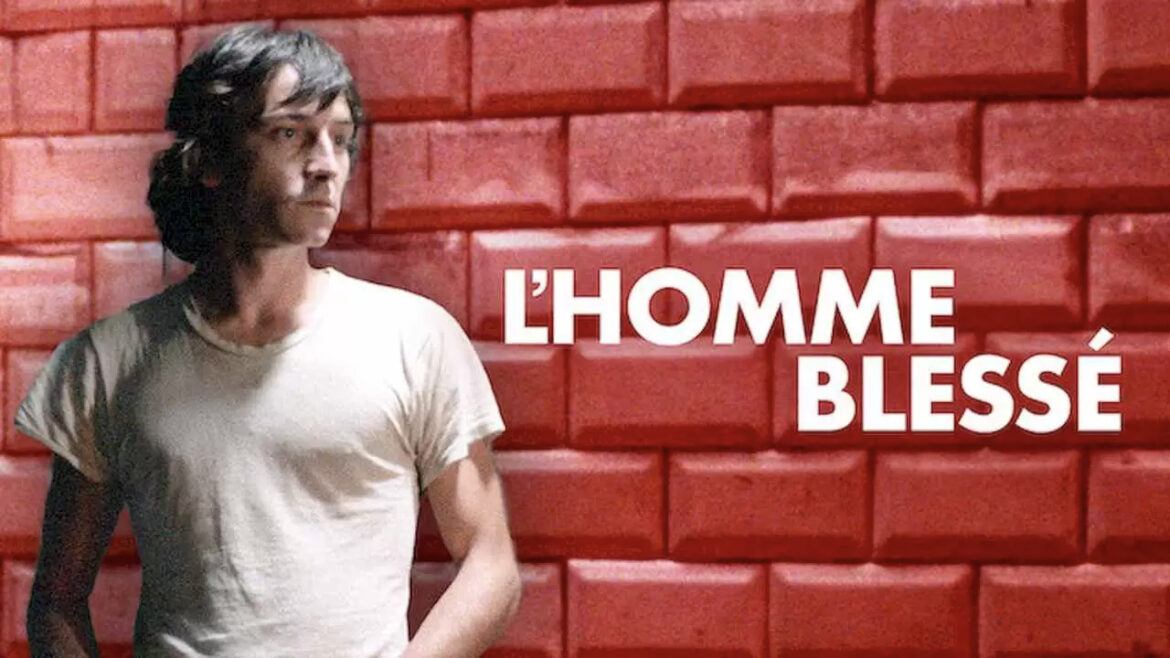
I loved this piece, and trust your judgment that it not only reflects Genet’s sensibilities, but champions them in film.
I don’t care if I’m condemned to hell. I have to see this movie. Your words are wonderful.
Sister Mary Flavian